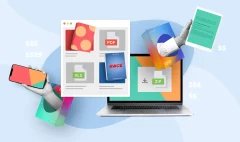How can you use language effectively to close a high ticket offer?
How can you use language effectively to close a high ticket offer?
Closing a high-ticket offer requires effective communication skills, and language plays a critical role in this process. The ability to articulate your thoughts and ideas in a persuasive manner can make all the difference between success and failure in closing a high-ticket offer. In this article, we will explore some effective language strategies that can help you close high-ticket offers successfully.
1. Understand Your Audience
Before you can use language effectively to close a high-ticket offer, it’s essential to understand your audience. Understanding your audience will enable you to tailor your language and messaging to meet their specific needs and concerns. Take the time to research your audience and learn as much as possible about their pain points, motivations, and goals.
2. Speak Their Language
One of the most effective ways to connect with your audience and close a high-ticket offer is to speak their language. This means using language that resonates with them and that they can understand easily. Avoid using industry jargon or technical terms that may confuse or alienate your audience.
3. Use Stories
Stories are a powerful tool for engaging and persuading people. When used effectively, stories can help you connect with your audience emotionally and make your message more memorable. Use stories to illustrate your points and demonstrate how your solution can help your audience achieve their goals.
4. Focus on Benefits, Not Features
When trying to close a high-ticket offer, it’s essential to focus on the benefits of your solution rather than its features. Your audience wants to know how your solution can help them, not how it works. Focus on the outcomes and results that your solution can deliver, and communicate these in clear and compelling language.
5. Use Social Proof
Social proof is a powerful persuasion tool that can help you close high-ticket offers. Social proof refers to the idea that people are more likely to take a particular action if they see others doing it. Use social proof in your language by highlighting customer success stories and testimonials.
6. Build Rapport
Building rapport with your audience is essential for closing a high-ticket offer. People are more likely to do business with someone they like and trust. Use language that is warm, friendly, and authentic to build rapport with your audience. Find common ground and show that you understand their perspective.
7. Be Confident
Confidence is key when closing a high-ticket offer. If you don’t believe in your solution, your audience won’t either. Use language that conveys confidence and authority, and be prepared to address any objections or concerns that may arise.
8. Create Urgency
Creating a sense of urgency can be an effective way to close a high-ticket offer. Use language that communicates the urgency of the situation and the need for action. Highlight any time-sensitive factors, such as limited availability or a looming deadline.
9. Ask for the Sale
Finally, don’t forget to ask for the sale. It may sound simple, but many people forget to ask for what they want. Use language that clearly communicates what you’re asking for and what the next steps are.
Conclusion
In conclusion, effective language is a critical component of closing a high-ticket offer. By understanding your audience, speaking their language, using stories, focusing on benefits, using social proof, building rapport, being confident, creating urgency, and asking for the sale, you can improve your chances of successfully closing high-ticket offers. Remember, a language is a powerful tool, and when used effectively, it can help you achieve your business goals.











